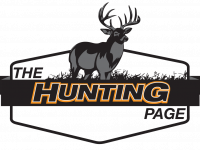A retrieving puppy is born with the instinct to retrieve and hunt, but for it to be the best at what it is capable of it is a lifelong training process to keep his skills honed. To prevent hard times down the road with your dog it is essential to train your young dog the right way from the very beginning. The best age to begin working with a puppy is when it is around two months of age. Within the first 6 months of a dog’s life it will learn it’s habits whether good or bad ones making it very important to get started training as soon as you can.
I was very young when I first started to train my first hunting companion with my dad’s help but as it was then and still is now some of the first thing to teach your puppy are to be quiet when told, not to be scared of a gun going off, the proper way to retrieve and swimming. You might think some of these might just be second nature to your puppy. They are already instilled with the basics because of their bloodline, but with a little help from you they can be a lot better.
The first thing my dad taught me to teach my first puppy was not to be gun shy. This is one of the most important things to work with your young retriever on in my opinion. Once a dog becomes scared of the sound of a gun being fired it will be very difficult to get that fear out of him. When I was a young child I had a tor gun that made a slight “boom” when the trigger was squeezed. My father had me begin with this toy in training my retriever. I thought it was silly, but now I understand the importance of gradually introducing your dog to gunfire. It is important to get your dog use to loud noises gradually and it never has to be actual gunfire. The noises could be anything from a training tape to keep your dog from being gun shy to banging two objects together that make loud sounds. This training exercise does not have to be done often. Once a month is often enough to acclimate your puppy to these sounds.
Just like with your own children, puppies need to have good contact with you from the very beginning. A bond will develop between you and your new pup and trust will grow throughout his life. Not only is it good to have this relationship, but it will also make training easier. Always remember your puppy is just beginning to learn so do not get angry or lash out at him. This will only cause the young dog to be timid of you. Instead of negativity use positive rewards such as treats and kind words when he does good.
Retriever puppies are bred to love water, but they still need to be shown what you expect of them. Most pups will know how to swim, but some might need a little help at first. If this is the case with your young dog it is not a big deal.
Begin by getting your puppy use to being wet in shallow water. Move on to deeper water and see how your young dog likes it. If the puppy can swim in your hands, wait in deeper water with your dog on land. Call for your dog to swim to you. If it is comfortable swimming, it will come to you.
When training there has to be a balance between having fun and making it seem like a job for your puppy. Start at a young age to teach him to retrieve. Two or three times a day play retrieving games. You can use a toy or a bone wrapped up in a clean rag. As your puppy gets better with retrieving change it up a bit by throwing the toy further distances, where he does not expect it, or use something that floats and throw it into water.
All training with your puppy needs to start slowly and advance as your pup gets better with what you are teaching him. Even though these dogs are intended to be hunting dogs you must start at a very young age with them. As they get older the old saying “you can’t teach old dog new tricks”, comes into play. With this basic information you have taught your dog he will be ready and more capable of learning more advanced retriever training. You as the owner must be patient, willing to put in the time, and do not change your routine. If you do this you will have a dog that is dependable and ready to work for you.
Photo: Howard Communications

